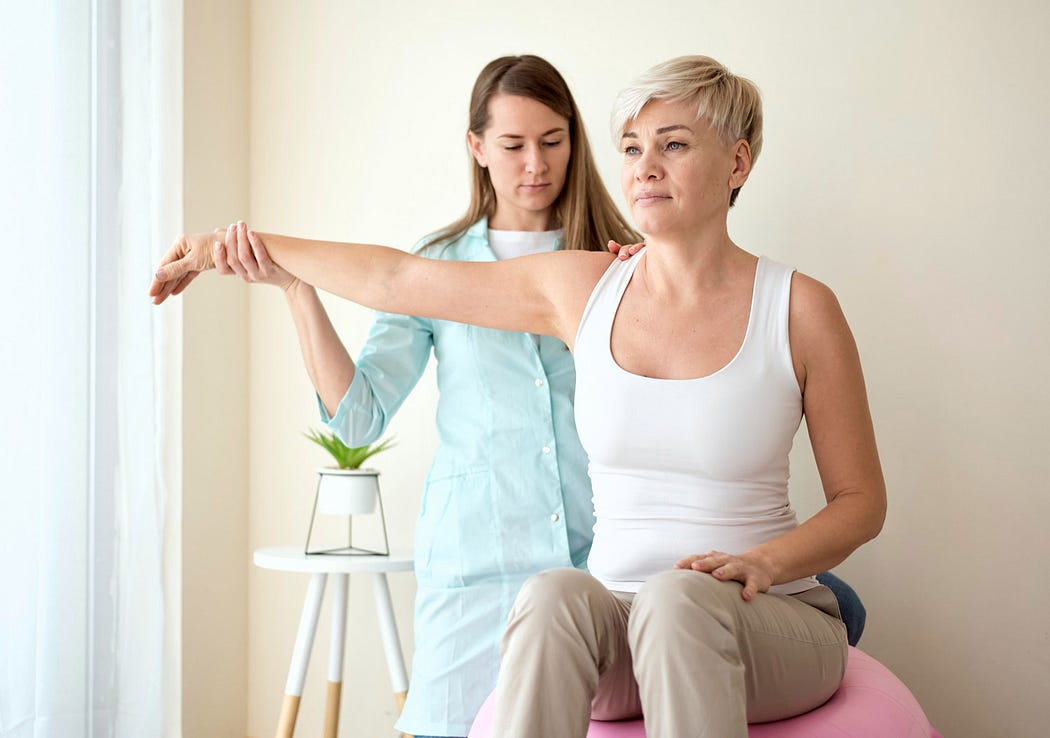Spending weeks in hospital can leave you feeling like a stranger in your own body. Everyday activities such as standing, walking to the kitchen, or getting dressed can suddenly feel like hard work. Whether caused by surgery, illness, or an accident, time spent in a hospital bed often leads to weaker muscles, stiff joints, fatigue, and reduced confidence — a process known as physical deconditioning.
Deconditioning happens when the body loses strength, flexibility, and endurance through inactivity. It can affect anyone, but older adults and people with conditions such as Parkinson’s, stroke, or arthritis are particularly at risk. Even short periods of reduced movement can cause noticeable changes, but with the right support, recovery is possible.

The Path to Recovery
Regaining mobility is a gradual process built on small, steady steps:
- Initial Assessment — A physiotherapist will review your current strength and movement, then set achievable goals.
- Gentle Movement — Simple actions like sitting upright, standing with support, or taking short walks help your body relearn how to move.
- Daily Task Practice — Rebuilding independence through everyday activities such as dressing, making tea, or safely using the toilet.
- Structured Exercise — Tailored exercises to improve muscle strength, balance, and flexibility without overwhelming you.
- Safety and Support — Learning safe techniques to avoid falls, with family or carers involved in your recovery.
The Benefits of Home-Based Physiotherapy
Home physiotherapy brings expert care to your door — ideal if you feel anxious about travelling or have limited mobility. It provides one-to-one attention, tackles deconditioning early, encourages regular movement, reduces the risk of hospital readmission, and tracks your progress over time.
Rebuilding Confidence & Balance
A hospital stay can also affect your trust in your own body. Physiotherapists help rebuild both physical stability and confidence by teaching safe movement, practising real-life situations, and introducing mobility aids if needed. Balance-focused exercises retrain your body to move securely, reducing the fear of falling and helping you stay active and independent.
In Summary
A long hospital stay may leave you feeling weaker, but it’s not the end of your independence. With professional support, regular movement, and gradual progress, you can regain strength, restore balance, and return to daily life with confidence — one step at a time.
👉 Read the full guide here: Improving Your Mobility After a Long Hospital Stay
Comments
Post a Comment